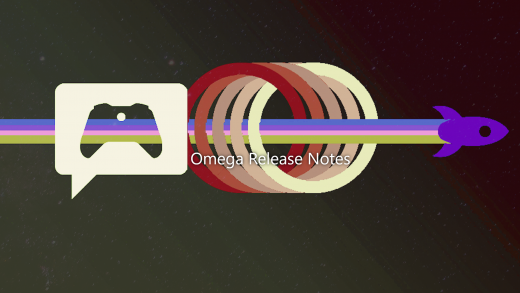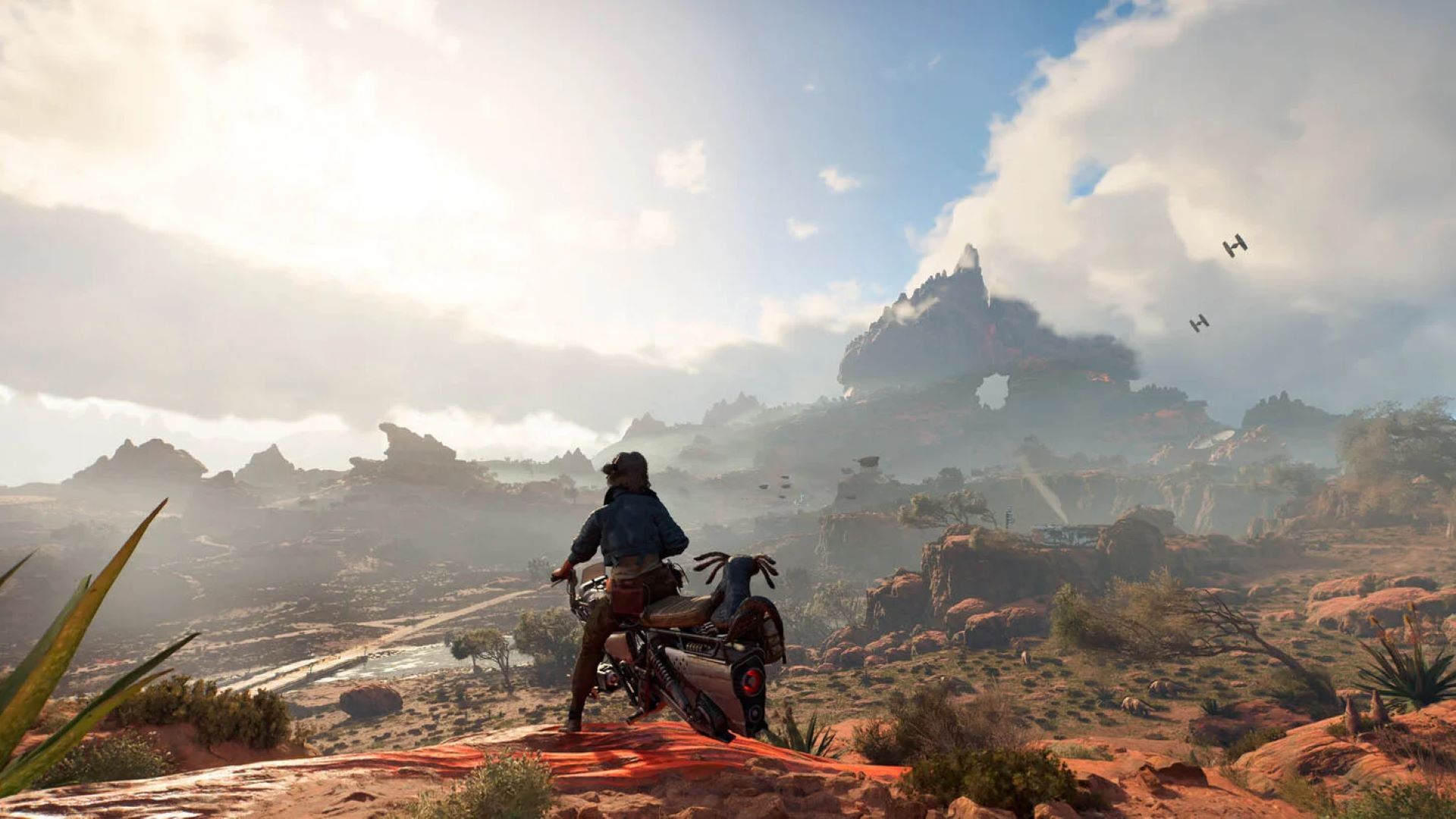
Star Wars Outlaws is a game that invites you to meander. If you move through its various locations, orbits, cities and homesteads at a considerate pace, you’ll spot all kinds of thoughtful props, quirks and details that are meticulously placed to showcase a part of the Star Wars galaxy through Kay Vess’ scoundrel eyes. While some locations featured in the game are known favourites from the Star Wars galaxy, other spots are lesser known.
In fact, Toshara – the savanna moon serving as a bubbling crime hotspot that you’ll visit early in the game – was designed by Massive Entertainment, in collaboration with Lucasfilm Games, marking a new entry into the Star Wars galaxy. Adding a brand-new creation to this established world is no mean feat – and we had the chance to speak to two Massive Entertainment designers about how the team went about building Toshara, right down to its inhabitants, wildlife, and even plants, as well as bringing other popular locations to life through a new lens.
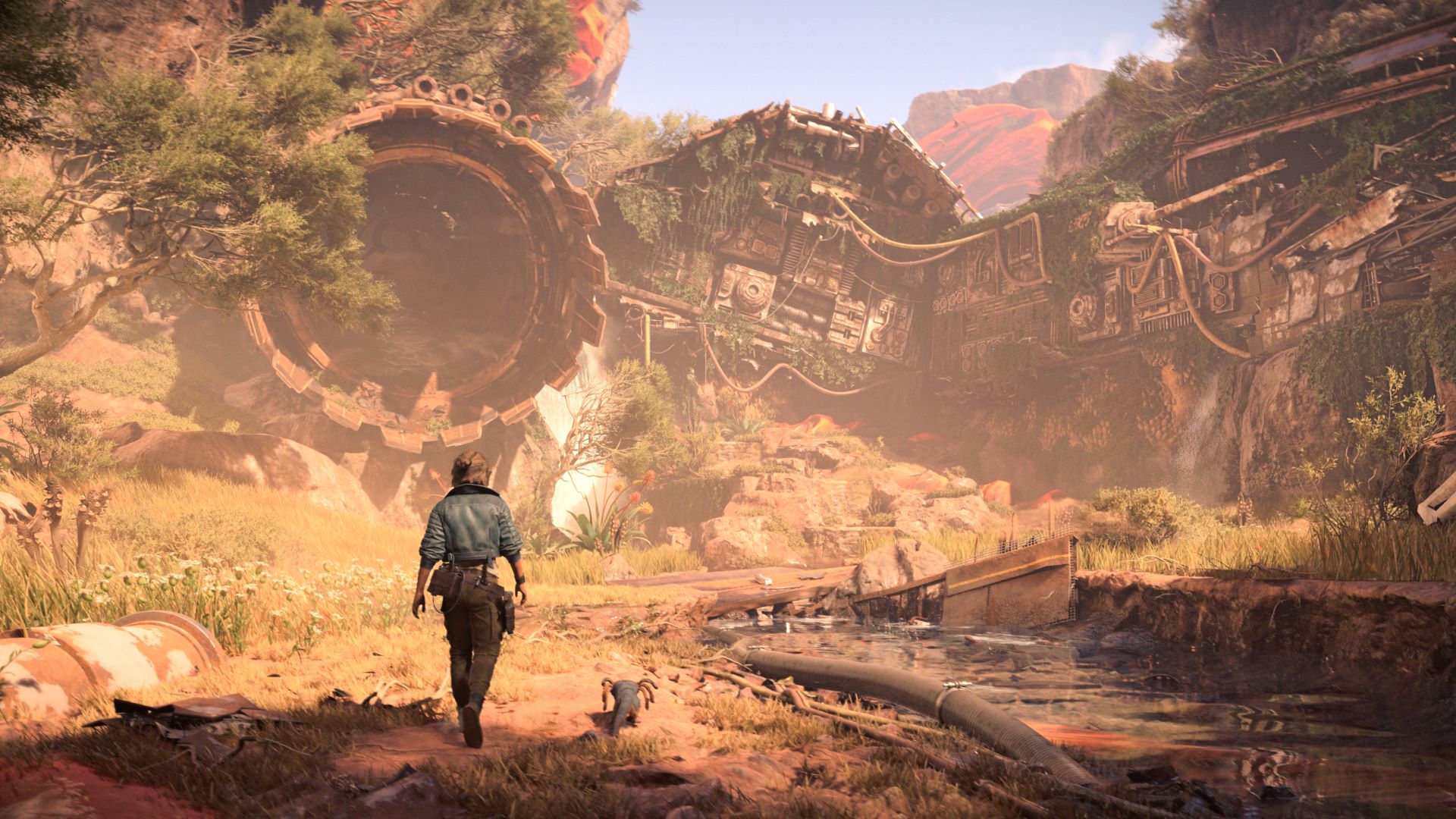
With countless pre-established locations on offer within the Star Wars galaxy, Massive Entertainment had to carefully consider which places felt fitting to tell Kay Vess and Nix’s story. The team wanted to showcase diversity in its settings, ranging from classic, recognizable areas like Tatooine, the desert home of Luke Skywalker, to lesser-shown planets like Kijimi, briefly seen in “Star Wars: The Rise of Skywalker” as a snow-coated haunt for the galaxy’s rogues. Akiva, meanwhile, is a jungle planet that has never been seen, only described in the Aftermath series of Star Wars tie-in novels.
Building Toshara
But Massive Entertainment crafted something entirely new in Toshara, the inhabited moon designed and purpose-built by the studio to act as a core component of the Star Wars Outlaws journey. After escaping her home city of Canto Bight, on Cantonica, Kay finds herself temporarily grounded on the moon, which is home to the Pyke Syndicate, as well as a host of other syndicates, ambiguous characters, hidden treasures and prosperous opportunities for a budding outlaw.
“We wanted to bring something entirely fresh to Star Wars that had never been seen before, and really embrace that as our playground for telling this exact story,” says Matthieu Delisle, Lead Systems Designer on Star Wars Outlaws. “This was the place where we could experiment the most and set a benchmark for the rest of the game.”
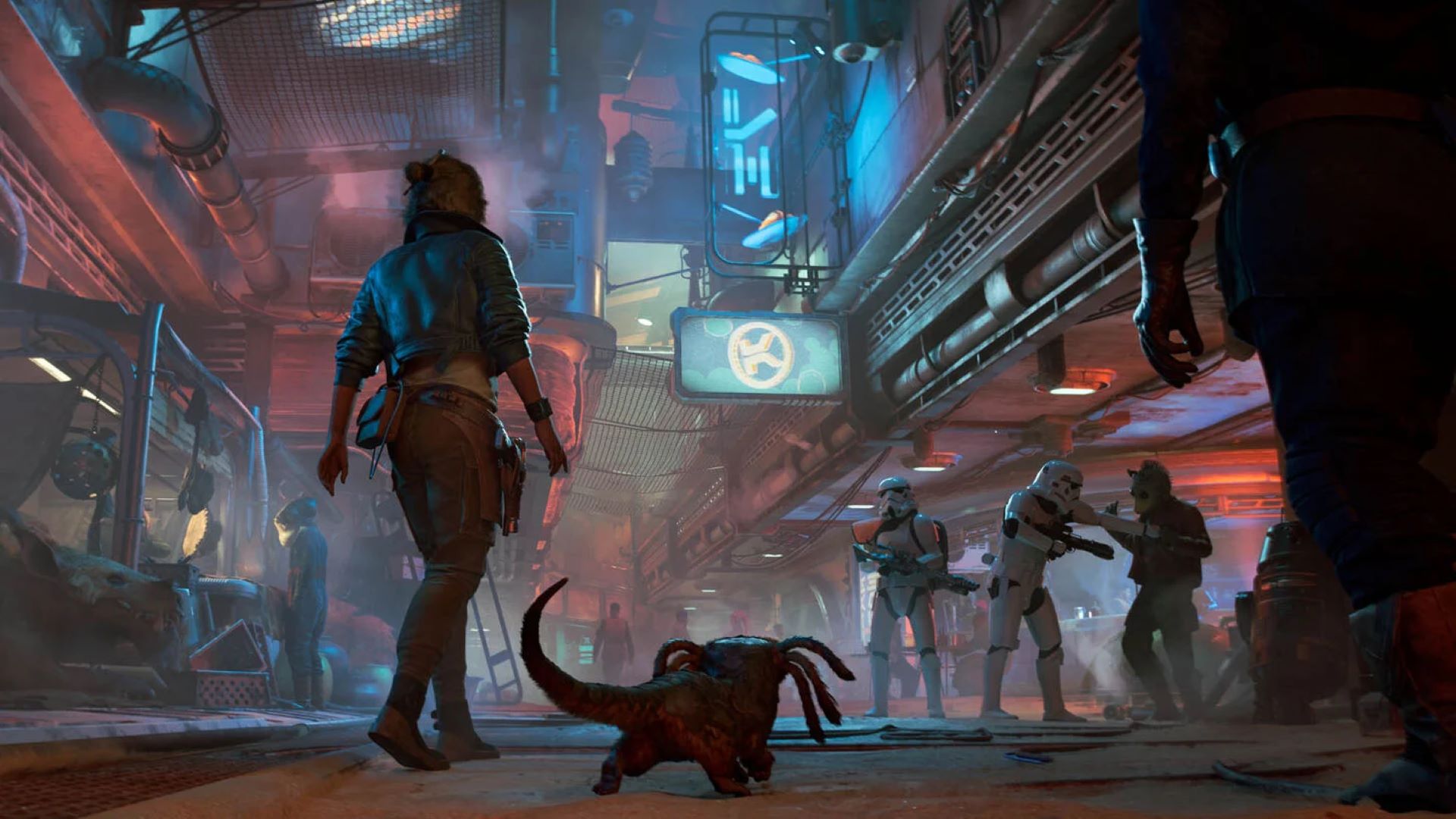
Toshara serves as a space where the different Syndicates in the underworld can come together, and, while it is controlled by the Pykes, it’s a location where The Empire is willing to let some things slide in exchange for some credits. Among its points of interest are Mirogana, a bustling major city that plays host to several Syndicate districts and Jaunta’s Hope, a smaller settlement. Off the beaten paths of Toshara, you’ll also uncover numerous points of interest – flyer nests containing valuable items stolen from locals, fields full of grazing wildlife, or Pirate Camps with treats ripe for the taking.
“This is where we had the most freedom to define what feels good in terms of an open world experience,” Delisle says. “We considered the speeder distance between different activities, how we could create points that will catch your eye and lead to something interesting.
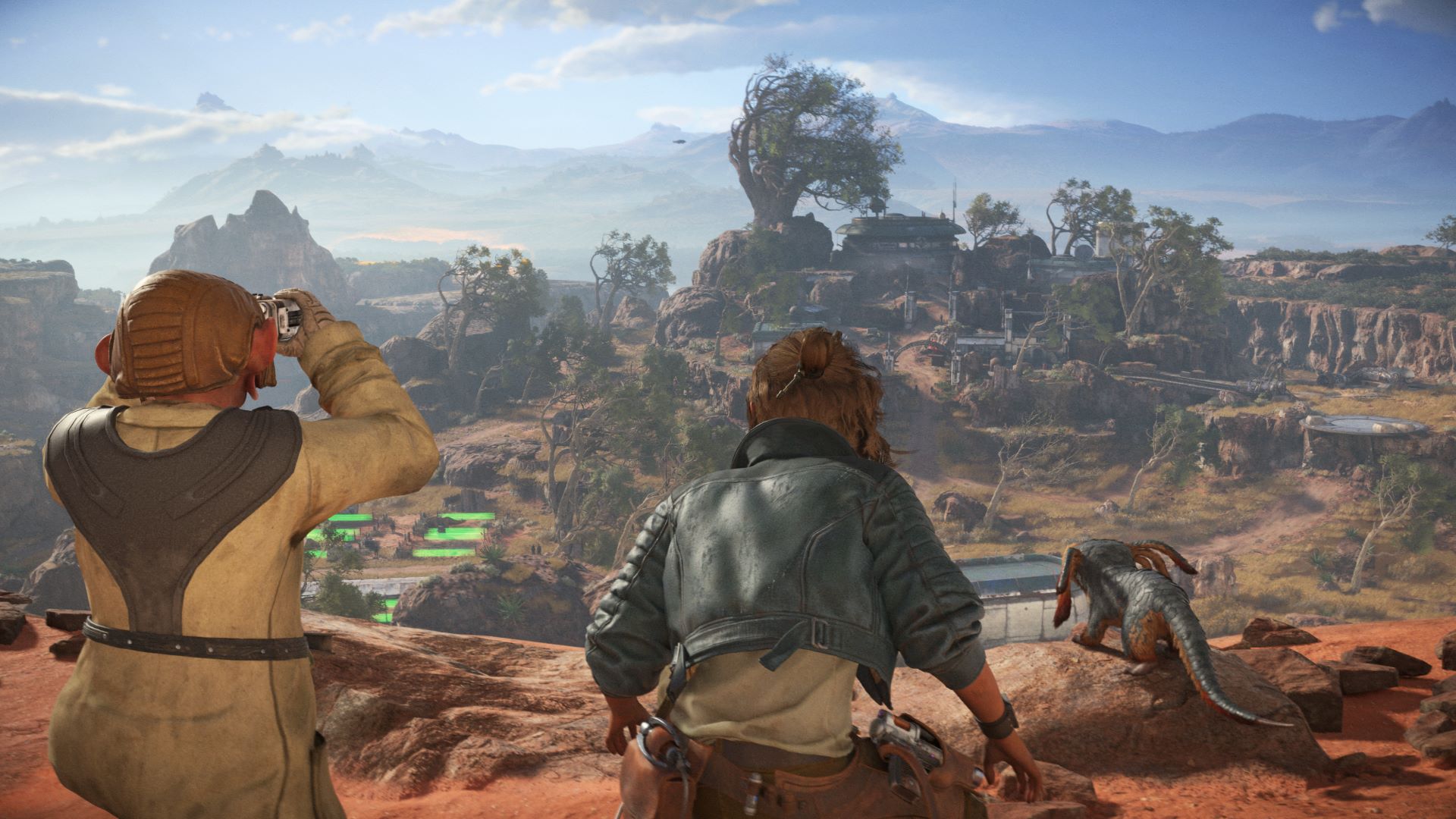
Not only is Toshara an entirely new experience for Star Wars fans, it’s also the first truly open world area that you can freely explore in a Star Wars game. As soon as you land here, it feels like an authentic Star Wars location you’ve seen in a classic movie, but what’s most impressive is that everything on Toshara, from its sweeping, dusty vistas to the flora and fauna that inhabit it, has been designed by Massive Entertainment in collaboration with Lucasfilm Games.
“Since we designed Toshara from scratch, we could create its entire history, from when it formed, to when it was first settled on, and how that fits into the wider Star Wars timeline,” says Benedikt Podlesnigg, Art and World Director.
“We created all of the wildlife, the architecture, what Toshara’s inhabitants eat, what they wear, their relationship to the Empire, and how all of these things are connected to each other. If you look really close, you’ll find food that characters are eating growing out on a tree somewhere, for example.”
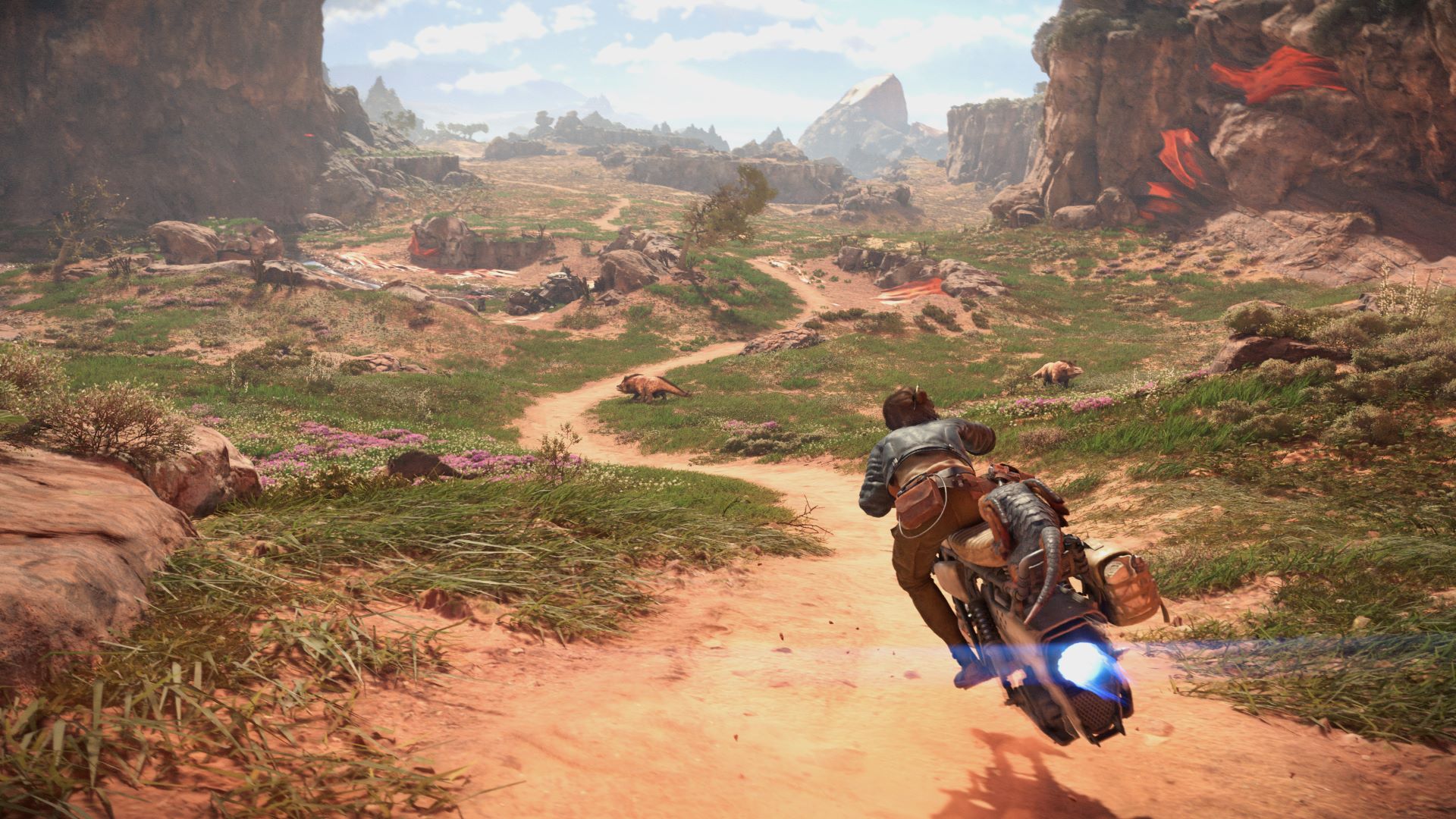
Massive Entertainment hasn’t just considered the visuals of Toshara, either. The team went as far as to define the planet’s gravitational forces and surrounding solar winds, so that pilots will struggle to navigate and land their ships without crashing unless they are very familiar with its orbit and layout. This in particular feels like an extremely cool detail that ties into Toshara’s presence as a hideaway for criminals with minimal Empire presence.
“It’s really in the DNA of Massive to create this logic of a world where things make sense,” Delisle adds. “There’s always a reason for something existing, and that’s really a trademark for us – to try and establish all of these locations and details to make them as believable and lived in as possible.”
An Overview of Kijimi
Later in the story, Star Wars Outlaws sees Kay Vess travel to Kijimi, a dark, frigid planet housing Crimson Dawn and the Ashiga Clan, another criminal syndicate, developed by Massive Entertainment in collaboration with Lucasfilm Games. Similar to Toshara, Kijimi is largely ruled by anarchy, but the Empire has a much greater presence here. Unlike Toshara, Kijimi has been seen in previous Star Wars media, which gave Massive Entertainment a jumping off point in how to build the planet’s eponymous main city into an interactive space, with a unique spin, of course.
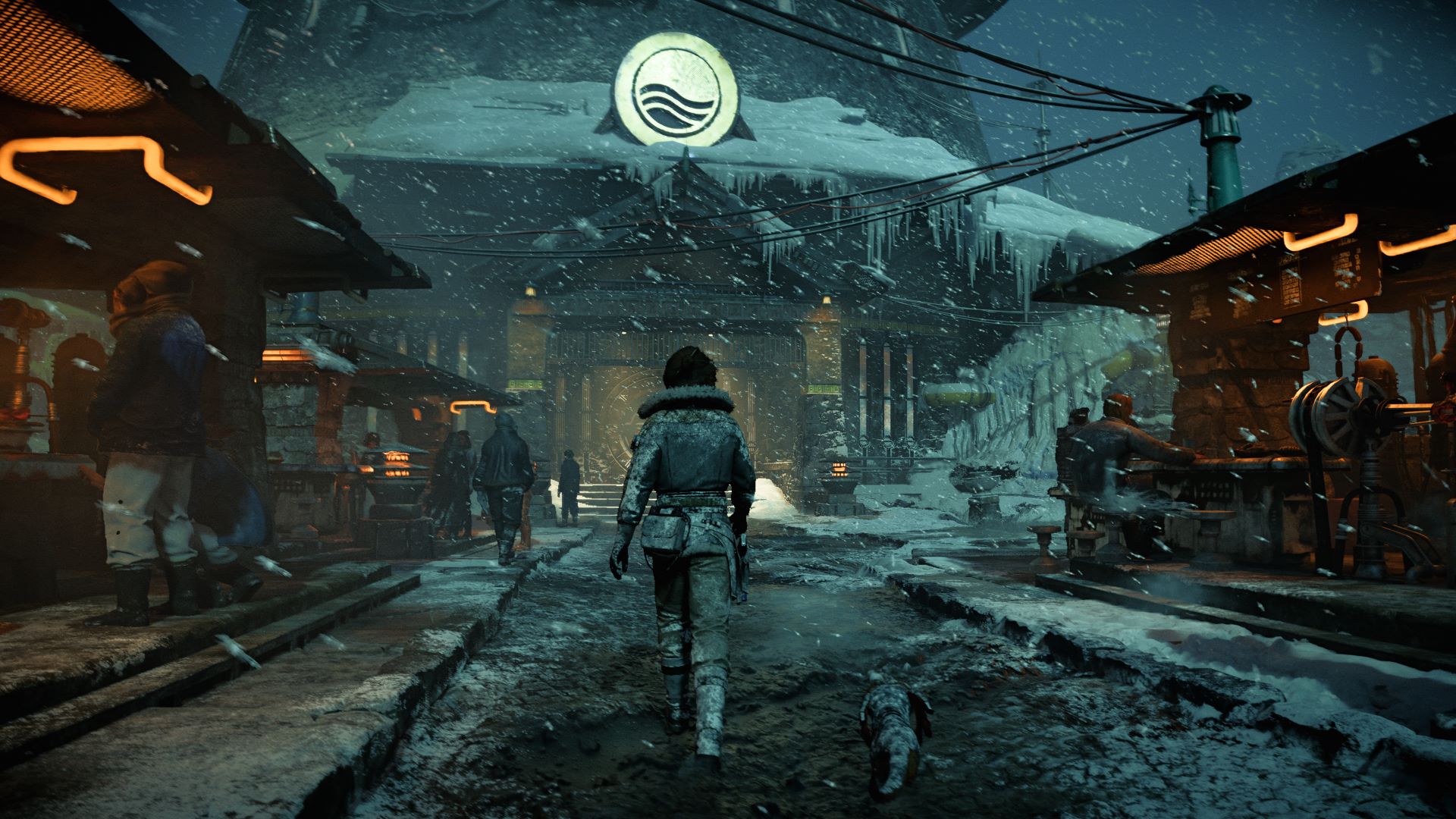
“We worked closely with Lucasfilm on Kijimi – we were given access to a big bank of concepts and behind the scenes footage, as well as the references they used for the location, these Japanese mountain towns that served as inspiration,” Podlesnigg tells us.
“We also got to see the 3D model of Kijimi that they used as an overview shot of Kijimi City in [Star Wars: The Rise of Skywalker], to also get a sense of orientation – where buildings are placed, for example.”
Kijimi City is a densely packed area, a stark comparison to the open vistas of Toshara and Tatooine. The urban environments are comprised of small streets and alleys brimming with questionable figures – walking through the city breeds a real sense of unease, as though anything could jump out at you.
“There’s a struggle here between The Ashiga Clan and Crimson Dawn, and there’s this a mood of cloak and daggers going on throughout,” Delisle adds. “We’re telling some of the main story here, but what was interesting for us was the smaller stories we could tell about people that ended up on Kijimi. It felt like a nice palette cleanser compared to the other more open environments in Outlaws.”
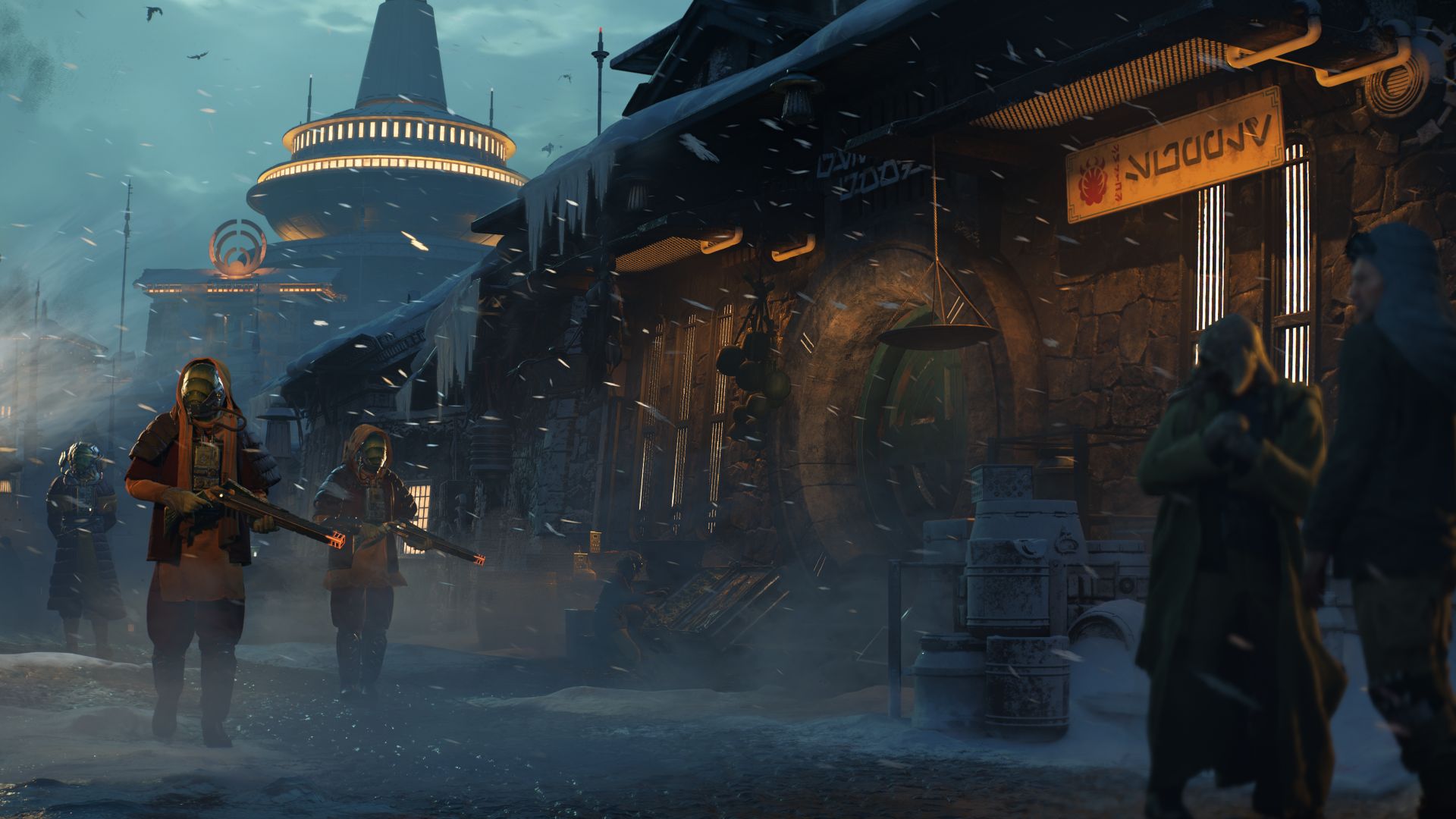
The Secret Ingredient is the Underworld
While all of the locations shown in Star Wars Outlaws vary in terms of familiarity, they’re all chosen with one primary focus in mind – depicting the underworld. Each place acts as another flavor of the dodgy dealings that Kay and Nix (mostly) voluntarily take part in – from the very first moment. Kay herself hails from Canto Bight, an Outer Rim gambling destination famously shown in Star Wars: “The Last Jedi”.
The location is a hotbed for the wealthy to be frivolous with their earnings – a situation that Kay has learned to take full advantage of as a thief. The contrast between Canto Bight’s setting and Kay’s upbringing sets the immediate tone for Outlaws – this story wants to show you these locations not through the eyes of a known hero, but as a scoundrel, desperate and hopeful. In the sandy dunes of Tatooine, Kay is not looking at the home of Jedi Luke Skywalker, she’s focused on opportunities, skulking down alleys, surveying buildings, perpetually on the hunt for something to give her an edge.
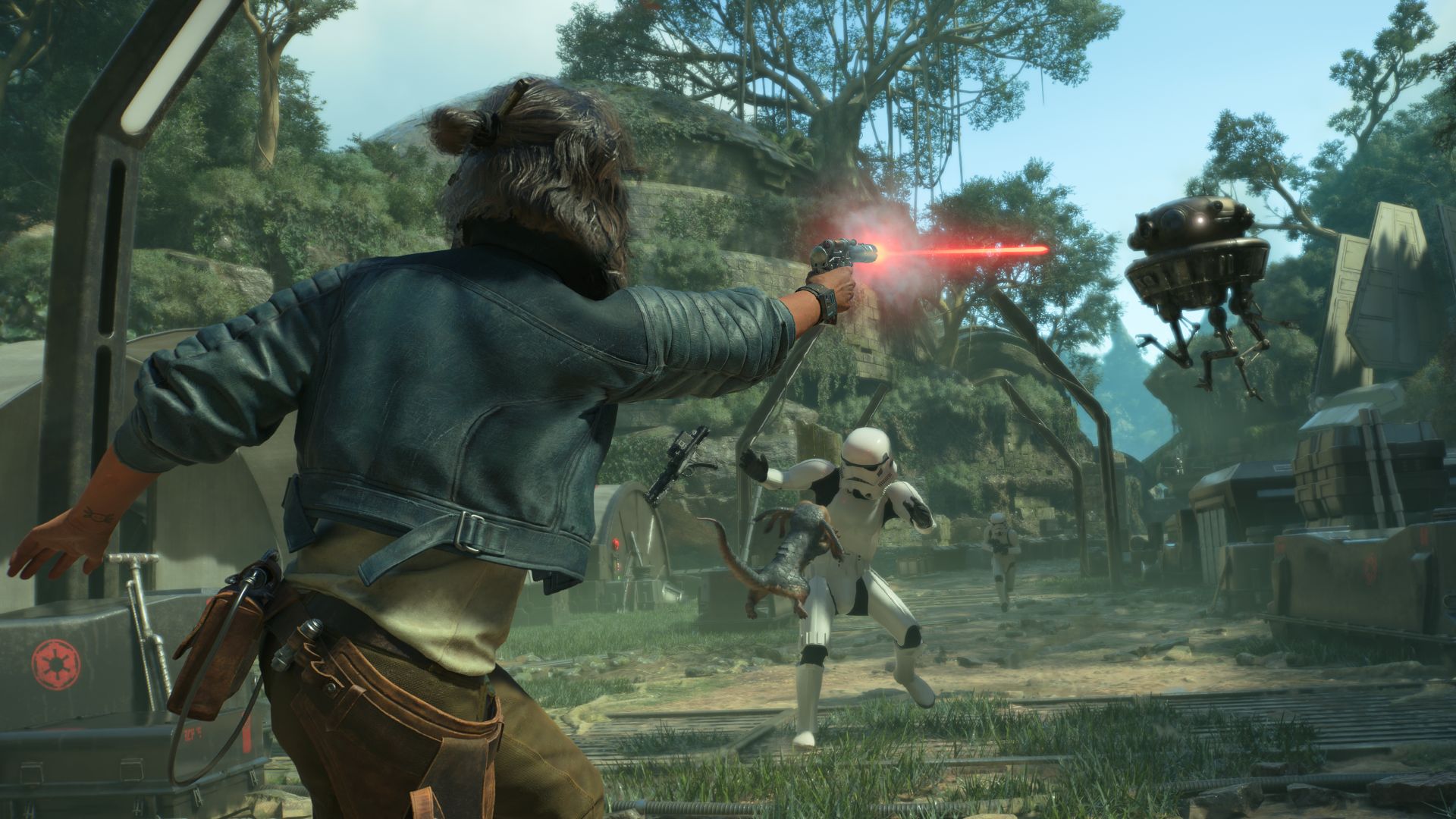
“One of the big ambitions when we started [Outlaws] was to show what is behind the curtain,” Delisle says. “Our generation grew up watching those movies and wondering ‘what would it be like to go there? You see things in the movies, but you never really get off the rollercoaster to really look at the world, see the wildlife, talk to the people that live there, and it was really important to us all to let players be someone that can just live in this world.”
“Every time I step out of the Mos Eisley Cantina, jump on my speeder, I just have a big smile on my face,” Podlesnigg adds. “This is just a love letter to everything Star Wars.”

